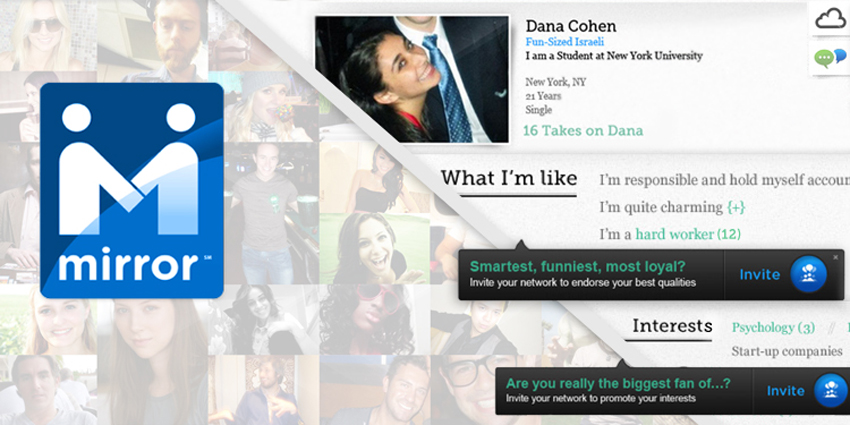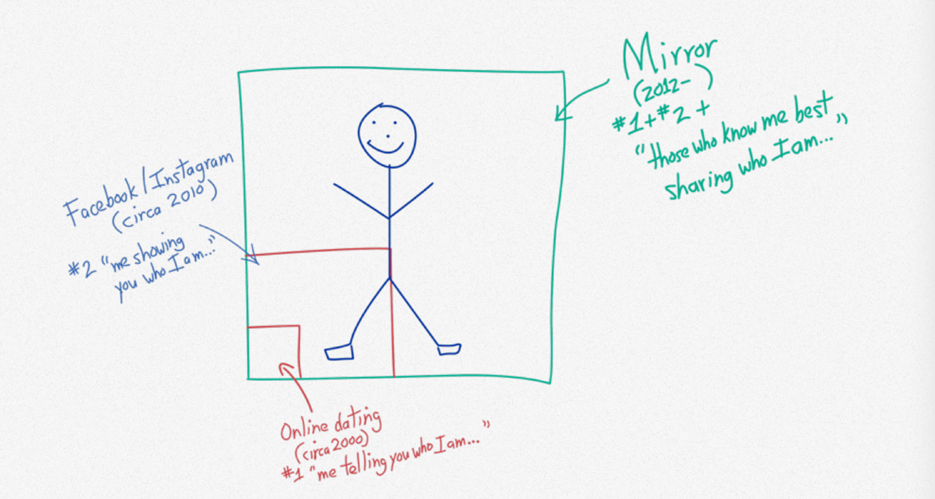 Mirror is a new form of web interaction that allows people to curate a mosaic of who they are, as told by those who know them best, and then use that mosaic to connect with others in a more meaningful way.
Mirror is a new form of web interaction that allows people to curate a mosaic of who they are, as told by those who know them best, and then use that mosaic to connect with others in a more meaningful way.
The company recently celebrated its first anniversary with a sizable funding round, its first dollar of revenue and has just been nominated in the Best Bootstrapped Startup category in TechCrunch’s 2012 Crunchies awards (vote for them here).
With the site processing over 10,000 unique messages between users in the past month alone we asked its founder, Daniel Mattio, how The Mirror team balances the aspiration of a big, new vision with the fastidiousness needed to develop a complex consumer product …all without getting vertigo.
The Mirror (@mirrormedia) vision is a big one. Mirror allows users to build up their profile (we call it a frame), their reputation, with the help of their friends. We’re opening up what was once a self-constructed and oft times anonymous thing, your online profile. Are you the funniest amongst your friends? The hardest worker? Let your friends endorse your qualities and highlight your unique traits to prove it. As we like to say around the Mirror offices, Facebook is “what I like”, Mirror is “what I’m like.”
An individual’s character counts in helping them connect with others for dates, jobs, roommates, etc. There is no dignity in anonymity. The Mirror ethos of truth and transparency in online relationships permeates everything we do. We have long philosophical conversations about how online relationships are formed, have too many good quotes on the whiteboard and have even had sociology professors in our office to debate our vision. But all this doesn’t pay the bills.
A start-up executive needs to be as focused, if not more, on the product as they are on the vision. Your average consumer may not be exposed to, or even care about, your mission statement. However, they will certainly see the product and every interaction they have with it must be perfect.
For example, Mirror is a text-heavy site, full of user-generated content. Mirror users cannot only endorse their friends’ qualities and interests but, if invited, give more custom feedback on each other. This opens the door for numerous issues with spelling, grammar and one of the world’s great evils, unwanted text wrapping.
In order to present a clean, engaging frame on someone, we needed to have every possible text entry by a user accounted for. What did we do? We used an old tool that I used every day in my former life as a Wall Street analyst, a spreadsheet. We calculated every possible character count iteration for our user-generated content. That way, our design team is fully aware of every text constraint when designing a page, or our forthcoming mobile app.
Character counts are just one example of the detail every entrepreneur must scrutinize to get their product as close to perfect as possible.













